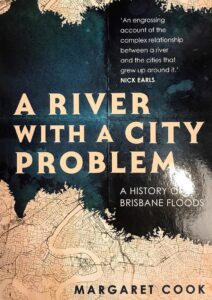Already in my street the neighbours have put up Christmas lights. Of course, the supermarkets had Christmas displays in the aisles months ago.
There is a caricature about the Festive Season. It is a family time. It is a time we’re winding-down at work. In particular historical contexts that makes sense, but for many of us the caricature is plain nonsense. Some may indeed have family around for Christmas Day but for the rest of the season it is the usual solitary existence. For a few, there is simply no family. As for winding-down, that’s much less likely for the professional classes, especially in today’s economic climate. For academics, and for many non-academic professional historians, the Christmas-New Year period is the time to get on with the book-writing or that research project. Yes, the Festive Season is a change of pace, but usually it involves speeding-up, not slowing down.
Still, it is nice to have an excuse to have a social gathering with colleagues. If only we would think do such things more during the year, rather than some annual ritual with that troubling, “oh what’s her name?”, and “hi, how do you do”, not a genuine question but a statement hiding the fact that elusive name still doesn’t appear in our brain. If we got together more regularly with colleagues socially, perhaps we might be more relax on these annual occasions.
Strangely, it reminds me of conversations that I have been listening into on social networking sites. Conversations about how colleagues can support members of an organisation dedicated to research and writing history. Here are a few examples of what I am hearing:
Getting to know [name of the organisation] members (list serve, discussion groups, annual conference) throughout a number of years has helped me to become aware of their special talents, skills and expertise. So I can act quickly and efficiently when I need to outsource parts of a project, or when I realize that someone else may be better qualified for a certain task than I am. As I am reaching out to them, they also reach out to me in return. Excellent work exchanges and collaborations have been the result. And final products of higher quality as well, I suppose.
And also:
I think exchanging tips about technology and practical details about the various crafts of personal history work is one of the chief benefits. Technology changes so often, and those of us who do chiefly print, for example, sometimes suddenly find ourselves having to scan photos or plan a video, when normally we would have subcontracted that work. So in addition to subcontracting work we often find ourselves coaching each other about the how-to’s we don’t know. One value of the educational offerings is that even if we do subcontract out part of a project (say, archiving), it is helpful to have a broad overview of what archiving (in this example) involves, so we know how to hire someone. Until we know what a task involves, we often underestimate how much time and skill and specific know-how are required.
As you might have guessed, these are not conversations from the Professional Historian Association in any of the Australian states. These are examples of remarks made in the Association of Personal Historians (APH). A very few members of the APH are also PHA members, but most of their membership are not professional historians. That in itself is not a problem. The problem will be for professional historians if we don’t learn from the organisational success of other historians in the marketplace and learn to do history management better than they do. If we don’t take these steps we will find that the non-qualified and non-accredited will simply take over available contracts and history will stagnate as a hobby industry, and that’s already how the wider public view our work!
It is unfortunate that professional historians generally (and there are exceptions to the rule) are scholarly folk who never had to be trained or operate as business women and men. There is also a strong public-service or community-work ethic in our profession, and, while I am sure that there is consensus that the ethic should be maintained, it must not overshadow our need to compete as a profession in the marketplace of both ideas and business proposals. The irony is that public-service and community-work ethic plays important part in a successful business plan. Oddly, it is collaboration, networking, a sense of fairness, public commitment, a fair return for a fair day’s work, which will built-up a business position. Of course, there are powerful companies that gained their position from ruthless competitive tactics and being ready to dismiss both internal and external relationships that become a burden to the profit margin. But that kind of business success is usually short-lived, and one has to live with poor public opinion and an increase of enemies who wish you harm.
As an association of professional historians, our strategic strength lies in the direction of fairness, collaboration, networking, public commitment, and marketable remunerations that reflect the worth of our qualifications and skills. The Management Committee has taken a few months to think out what that means as we discuss the draft Strategic Plan. It takes time. However, we have moved to a re-draft of the existing objectives, organising them into five different areas. We are looking at ways to get:
- help in the work of the Association;
- links with those who are
- coming into the profession (History Postgraduates and Graduate Historians)
- qualified historians who are not yet members
- members who would benefit with the opportunities to meet socially;
- our profile (collectively and individually) out into the wider world;
- training and professional development for the membership;
- programs to find work opportunities for members.
The heart of the plan is what we can do collaboratively and that means each member has a part to play in the life of the Association.
While the planning continues, there is a way that you can play your part in the Association. It is to be part of the conversation, like the APH members are doing. The PHA (Qld) has its own social network site. It is a place where there is an opportunity to discuss issues and opinions which would not be appropriate to express in the e-bulletin. You need to talk about how you’re feeling about being a professional historian in Queensland: the anger, the disappointments, the sorrow, the joy, the hope, and achievements. You need to let it out among your friends and respected colleagues who have shared same or very similar anger, disappointments, sorrow, joy, hope, and achievements.
I know that some members have been hesitant for various reasons. Please let me encourage you to re-think the reservations:
- Some fear the technological challenges. Let me say, you are now receiving emails and the technological skills in using social media is not much different to what you are doing right now.
- Some fear the negative consequences from social networking, as picked up in media hype of the last few years. The PHAQ Facebook group site is not a bunch of teenagers gossiping in a chat-room. It is a closed group site. It is for PHAQ members (the only exception is a single ACPHA delegate). To join, you need to send a request to me as the site moderator. If any member has any reservations about using Facebook as a provider, I am happy to set-up another group site from other providers (e.g. Google Plus) and work at mirroring the content between two group sites. I would rather do the extra work than have members left out of the conversation.
- Some fear the time-consumed in social networking posts. Ahh, yes, I remembered the hours I wasted in the years when news service websites first sent out daily hyperlinked emails. Yes, it is a trap, especially for a generation that didn’t grow up with the huge access to information, news, and opinions across the world. “Holy mackerel, Batman, we only dreamed of this sort of computer power!” However, as professional historians, aren’t these sorts of skills we have; to sift through the avalanche of data and pick out the salient points. In the end, the tools are only as good as its skilled operator. Be encouraged. Social network sites are set-up to browse quickly through posts, and to enable you to make quick comments if you wish to do so. It does take some discipline but you learn how to take only certain time to post and comment, according to your own schedule.
Please, members, I am here to help you. Yes, I am busy writing two books in the next four months, but you are important to me. You are my brothers (sisters)-in-arms and we are in this fight together. Speak to me!

